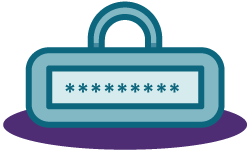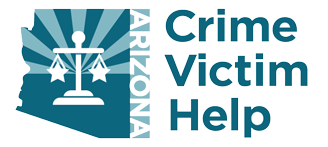Safety at Home
What can I do if a crime occurred in my home?
Anyone who is in immediate danger should consider calling 9-1-1 or contacting law enforcement.

As a priority, you may want to take steps to make sure your home is safe. This might include:

Changing the locks on windows or doors, installing security cameras or alarm systems, or adding lighting to darkened areas (lamps, night lights).
If you know the perpetrator or fear additional contact from the perpetrator, consider requesting a protective order. More information about protective orders is available at AZCourtHelp.
Develop a safety plan with your family and friends. Speak with your neighbors or landlord about your safety concerns.

Thinking about safety can be especially important for victims of crime. It can help reduce risk, and also help victims of crime develop a sense of security. A good way to begin thinking about safety is forming a safety plan.

Keep your home address private by registering with the Arizona Address Confidentiality Program. Consider changing your telephone number.
If I rent my home, how do I get my locks changed?
Check the terms of your lease for information on how to request repairs or changes to the property. When asking for lock changes, submit the request in writing to the landlord or property owner. Depending on the lease terms or the property owner, the tenant may be responsible for the cost to rekey or change the locks.
The property owner does not have to agree to rekey or replace the locks, even if the tenant pays for the change, unless the tenant is a victim of domestic violence or sexual assault. Arizona law states that:
The property owner does not have to agree to rekey or replace the locks, even if the tenant pays for the change, unless the tenant is a victim of domestic violence or sexual assault. Arizona law states that:

If a lock is in good condition, the landlord can have it rekeyed.
If a lock is not in good condition, the landlord must have it replaced with a lock of equal or better quality.
The tenant must pay the cost.
The landlord has a right to keep a copy of the new key.

The person who committed the crime lives with me. How do I stay safe in that situation?
A protective order may be requested from the court which gives the victim the “exclusive” right to continue to live in the home. If the court agrees with the request, the protective order would require the person who committed the crime to move out, even if their name is on the lease or mortgage. If the person who committed a crime is on the lease or mortgage and the protective order does not require them to stay away from your home, they can return to the property.
If the person who committed a crime needs to get their belongings, they can request a “civil standby.” A civil standby will allow someone to return to the property under the watch of a police officer for the purpose of getting some of their things.
If the person who committed a crime needs to get their belongings, they can request a “civil standby.” A civil standby will allow someone to return to the property under the watch of a police officer for the purpose of getting some of their things.


